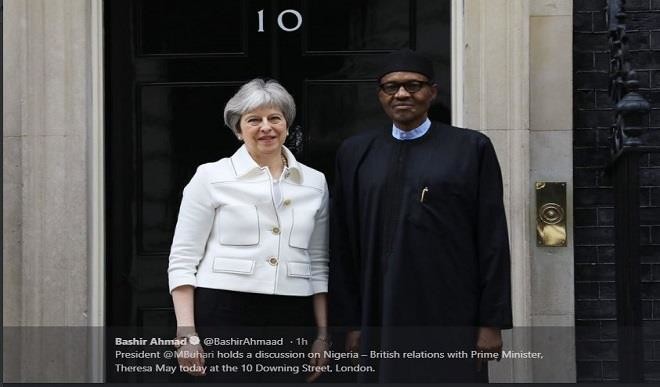The huge defeat of the UK prime minister’s Brexit deal yesterday has added a new twist to Britain’s attempt to leave the European Union. Theresa May’s unpopular deal was defeated by 230 votes (432 to 202) in British Parliament, prompting Opposition leader Jeremy Corbyn to table a no-confidence motion. The vote is scheduled to hold today. It is unclear whether Mrs May can survive this no-confidence vote, as she did the one within her own party last month – and even if she does (which is likely), whether she would be able to govern effectively, given the magnitude of the defeat she suffered yesterday. What is clear, though, is that the Brexit confusion is set to continue.
Ironically, this is coming at the time when the rest of the world, including Nigerian, is looking for clarity on how their future relationship with Britain would be. That clarity, as yesterday’s vote showed, won’t be coming soon. The gamble that former Prime Minister David Cameron took to conduct a referendum in June 2016 on whether the UK should leave or remain in the European Union has remained a costly one ever since. The UK did vote to leave but leaving has turned out to be more difficult than most had ever thought. The turns and twists in British politics and the passions Brexit has generated ensure that the situation remains even cloudier now than when the journey began. But what does Brexit means to Nigeria? An article I wrote immediately after the Brexit vote two-and-a-half years ago trying to answer this question seemed as relevant then as it is now. It is reproduced below with slight editing to fit the space:
Nigeria and Brexit
David Cameron’s fantastically foolish decision to hold a referendum on Britain’s membership of the European Union has cost him his job, shaken the opposition Labour Party and sent shockwaves across the world. Nigeria is not immune.
The UK prime minister had wanted to use the referendum to shut up the Euro-sceptics within and outside his Conservative Party. Instead he is now likely to hand over the party and the country to them. As one commentator, John Crace, says, “He’d gambled the future of the country for an internal party squabble and he’d lost.”
But while Mr Cameron licks his well-deserved wounds, the world would have to deal with the mess he created. The huge tumbles in global stock markets seen last Friday may be just the beginning. The worst-case scenario would be a 2008-like global financial crisis and its subsequent recession. If that happens, Nigeria would be in turmoil because unlike the 2008 crisis, which it withstood because she was awash with petrodollars then, this time around her economy is in a shambles. A further disruption could mean economic collapse, Boko Haram’s resurgence, Niger Delta Avenger’s anarchy and Biafra separatists’ chaos.
But this scenario is actually avoidable. First, Brexit needs not to lead to global economic crisis. Financial institutions are more regulated now, banks more capitalised and the system more equipped to deal with the situation. Second, the hysteria that first greeted the exit vote, with some EU officials asking Britain to quickly go, is now being replaced by more measured reactions. German Chancellor Angela Merkel has said nasty divorce would help no one. United States Secretary of State John Kerry is also mediating to avert unnecessary dispute. So it is not all doom and gloom.
In fact, handled cleverly, the UK’s decision to leave EU would be beneficial to many countries, including Nigeria.
First, a Britain that is committed to doing trade with non-EU countries and freed from the restrictive EU trading codes will natural turn to its traditional trading partners, such as Nigeria, for greater business opportunities. This would be mutually beneficial for the two countries.
Secondly, the main weapon Brexit campaigners used to persuade people to vote for exit was the uncontrolled EU migration to Britain. Former London Mayor Boris Johnson and Justice Secretary Michael Gove, who led the campaign, argue persuasively that Britain will benefit more if it adopts an Australian-type points-based non-discriminatory migration system which gives equal opportunities to both EU and non-EU citizens to work in the UK. Under this system, Nigerians, having English as their second language, will have more chances of getting UK work permit visas than say Romanians. Skilled Nigerians could gain a lot under the proposed system. Of course, there is a negative side of this, in the form of possible brain drain against Nigeria. But there would be good remittances from those Nigerians. So what Nigeria may miss in their services at home, it will gain in the hard currency they would be sending home, which is highly needed now.
Thirdly, student visa is another area where Nigerians are bound to gain from Brexit. It is becoming increasingly difficult for prospective Nigerian students to get visa to study in the UK mainly due to British government’s desperation to meet immigration targets in the face of mounting EU migrant figures. Since the UK, under the existing system, cannot control EU migration, David Cameron’s administration decided to put several visa restrictions for non-EU citizens to achieve his pledge of reducing immigration figures to “tens of thousands a year, not hundreds of thousands”. And as he fails to meet the target year after year, his government keeps adding new restrictions and making it more difficult for non-EU students to have opportunities to study in the UK.
Worse still, as part of that restriction scheme, the government abolished a post-study visa programme, which grants two-year permit for students to work in Britain after their studies. It was a very effective system which didn’t only help the UK economy to get the services of the skilled manpower, but also enabled the graduates to gain valuable work experience and recoup the money they invested for their study before returning to their countries. The new system being proposed by Brexiteers looks set to restore this programme. Many Nigerians would gain from it. Of course, British universities, too, would earn more money and greater cultural capital from a more liberal student visa system.
Another area of potential benefits for Nigerians is the predicted fall in UK house prices as the result of quitting the EU. If this happens, many Nigerians residing in the UK including students who collect huge money from their parents for rents will get some relief. But, of course, wealthy Nigerians who own mansions in Central London may be among the losers, too. And those who stole Nigerians’ money and stashed it there would equally see the value of their ill-gotten wealth lose its value.
Away from the economy, Brexit could have other consequences on Nigerians – some of them negative. There is fear, for instance, that Brexit campaigns, which were partly pursued on highlighting the dangers of immigration, would heighten xenophobia and put Nigerians residing in the UK in trouble. While this could be a possibility, it is unlikely to be as serious as being feared. Nigel Farage, the leader of the United Kingdom Independent Party (UKIP) who is accused of promoting anti-migrants narratives, is not going to govern post-Cameron Britain. And his supporters aren’t going to be in charge of the UK streets. He and his supporters did play a role in winning the referendum, but they are marginal in the main structure of British establishment. And frankly, Britain is overwhelmingly a tolerant society; Brexit won’t change this.
But the wind of separatism that seems to blow along with Brexit is also being seen as a potential negative impact on Nigeria. The separatist revival coming from the Scottish nationalists who were angered by the ‘Vote to Leave’ may embolden Nigerian separatists to step up their own campaigns. The Niger Delta Avengers have already capitalised on Brexit to make this point. But given that David Cameron himself is already regretting his action, no one would want to emulate him.




